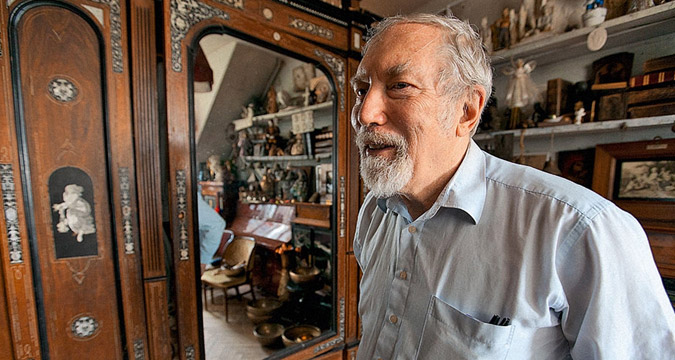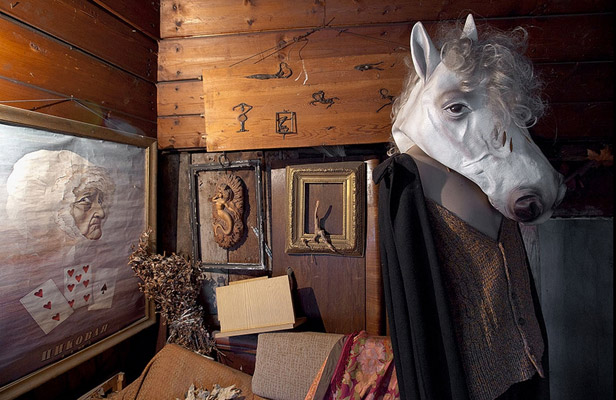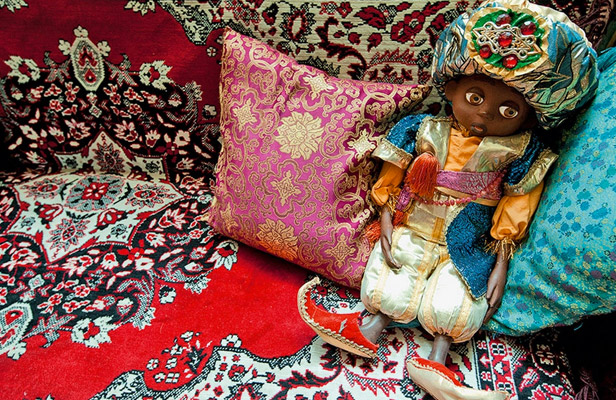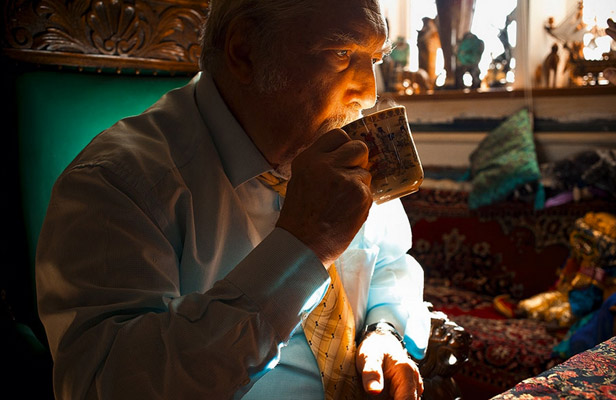
Andrey Gnezdilov
Tamara LarinaCan hospices be described as medicine?
Andrei Gnezdilov: The medieval doctor Paracelsus used to say that there would come a time when each doctor would have to become medicine for the patient. If you can't help him, try to empathize with him. He cannot be left alone against the tanks that destiny has in store for him. A real doctor is one who comes to the sick person and even without writing a prescription but just by talking with him assuages the person.
 Source: Tamara Larina
Source: Tamara Larina
Meaning that what is important is not the hospice but the doctor's personality?
A.G.: That is the idea we had when we entered the hospice movement. But it is idealism, a dream. In order for the doctor to tell the patient that nothing frightening will happen to him, that it won't be painful, that he won't be alone, he must first experience the tragedy himself: either the loss of someone dear or having been ill himself. There are certain events in life that motivate us to study medicine, to become a helper of humanity.
 Source: Tamara Larina
Source: Tamara Larina
How did the hospice movement come about in Russia?
The first hospice in Russia was established in 1990 in Lakhta, a suburb of St. Petersburg. It provides free assistance to the incurably ill.
A.G.: We established the first hospice in 1990. Together with English journalist Victor Zorza, and at his expense, I visited England where I studied how all this must be organized. A group of people then came to my hospice, people who had no medical education. They weren't nurses. What can they do, I thought? They could be attendants, orderlies. That doesn't need an education. The salaries are meager. Then many studied to become nurses. But the most interesting thing is that I remember every person in the group.
In what sense?
A.G.: Sometimes a patient asks not for the doctor but for the orderly. It's just easier to get along with her. I don't know if you've ever been in a hospital and had to go to the bathroom. You are lying there and there are three people around you. You must poop. There in bed, in your diaper. You are embarrassed. And then suddenly you see our orderly. With her around everything is more natural. It is very important that the sick have the opportunity of calling someone with whom they feel comfortable.
 Source: Tamara Larina
Source: Tamara Larina
Why do you use puppets in your therapy?
A.G.: This is a baby's first friend. He is small but the puppet is even smaller. The baby has an imagination. And this opportunity to think irrationally assuages the adult. Because everyone has a baby inside, one who saves him from the most difficult situations. Some of the medical workers tell me in amazement about a professor who is being treated in a clinic he helped establish. He asks an orderly, "Can you read me something?" "Sure. What would you like?" "A fairytale?" "Why a fairytale?" "Because fairytales have the element of magic." That is why we practice the psychotherapeutic transformation into a child.
Where did you get these puppets?
A.G.: We make them. I had looked for storytellers but couldn’t find any. It was sad. Then suddenly I came across a puppeteer. And puppeteers are also storytellers actually. They make magical figures that replace people.
How's that?
A.G.: You know that an action that is played through in a situation is realized easier in reality? A doctor comes to a patient and says: "I am the Nutcracker, I've come to serve you." And then he gives the patient a puppet. The patient's pride and obstinacy will prevent him from trusting the doctor. But he presses the puppet to the area where it hurts and he feels better! I have a puppet that has comforted so many patients!
People become ill and lose their strength due to rather simple things like stress. Where do the doctor and the hospice staff get their energy? How do they manage to carry on?
A.G.: You know, as strange as it may sound, you have to fight fire with fire. Basically all the suffering that the patients go through we also have to bear. In smaller degrees but more frequently. But in general this has to do with being… what should I call it? ...being confessors of pain. Yes, perhaps that's the right expression. That’s what the hospice doctors are.
Read the full interview in Russian here
All rights reserved by Rossiyskaya Gazeta.
Subscribe
to our newsletter!
Get the week's best stories straight to your inbox